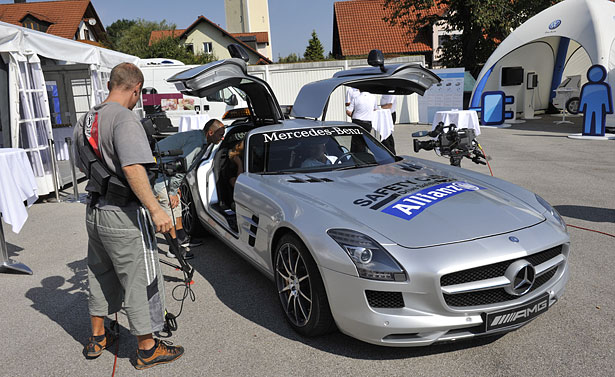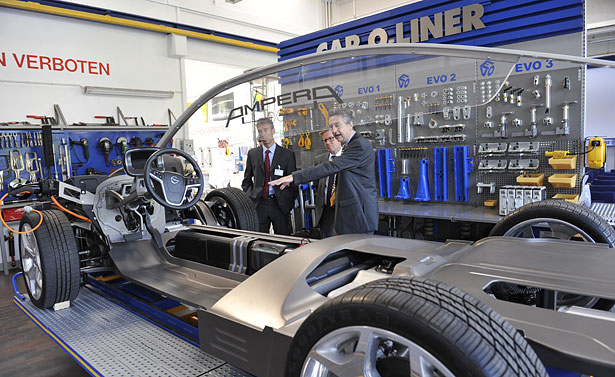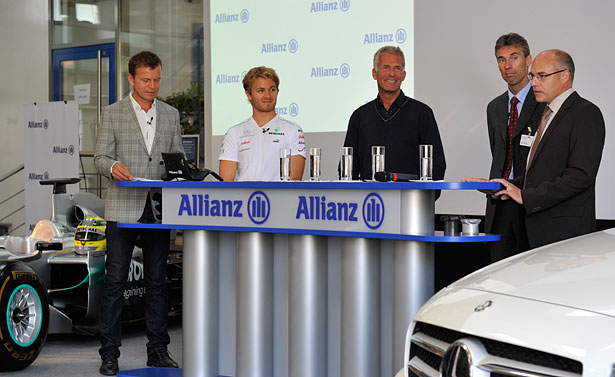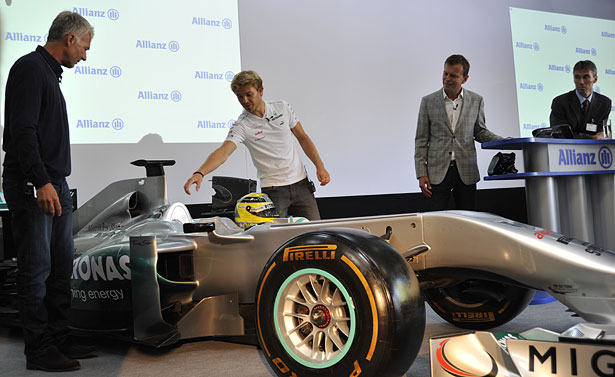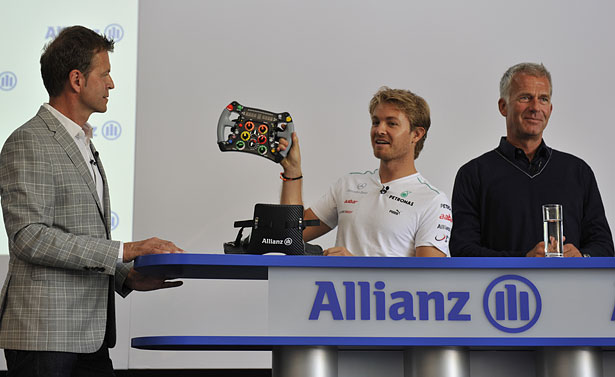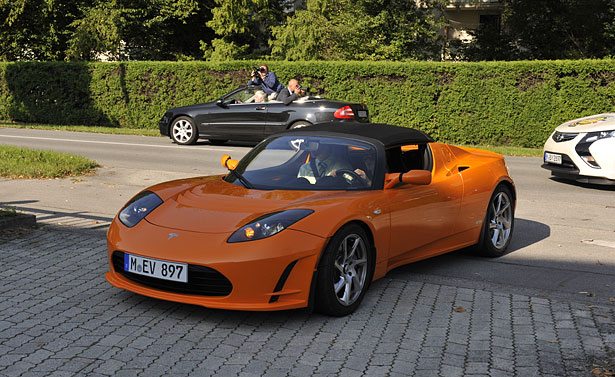At the first Allianz "auto day" not only the Mercedes racing car from the Rosberg team stole the limelight, but the visitors' attention was also captured by a fast range of electric mobiles. Throngs of people quickly gathered around the e-models. The bright orange Tesla racing car proved the point: strong performance combined with environment-friendly electric vehicles - that is no longer science fiction. One could observe visitors with astonished faces climbing out of the test vehicles. It did not take long before you could hear them discussing whether such a car might not be an attractive alternative for themselves. Nearly everyone took advantage of the opportunity to test the various models in the AZT yard.
Are electric cars dangerous?
47,000 hybrid and more than 4,500 purely electrically powered passenger cars are already taking part in German traffic. Consequently, previously unknown risks are now lurking on our roads. Due to their noiselessness, electric vehicles are quickly becoming a danger for other road users. If a pedestrian crosses a street he often only takes a quick glance at approaching vehicles. He orients himself by the sound of engines. For this reason, Allianz pleads for the installation of synthetically produced sounds for speeds of up to 30 km/h. In this way the likelyhood of accidents would be considerably reduced.
Are electric vehicles endangered by the risk of explosions due to the batteries? And does the driver receive electric shocks under certain circumstances? These are mere rumors which the head of Allianz safety Research, Carsten Reinkemeyer, firmly rejects. Just as for conventional vehicles, a basic fire risk exists in the event of a serious accident. "According to the present state of knowledge, however, there is no increased risk", the safety expert said.
